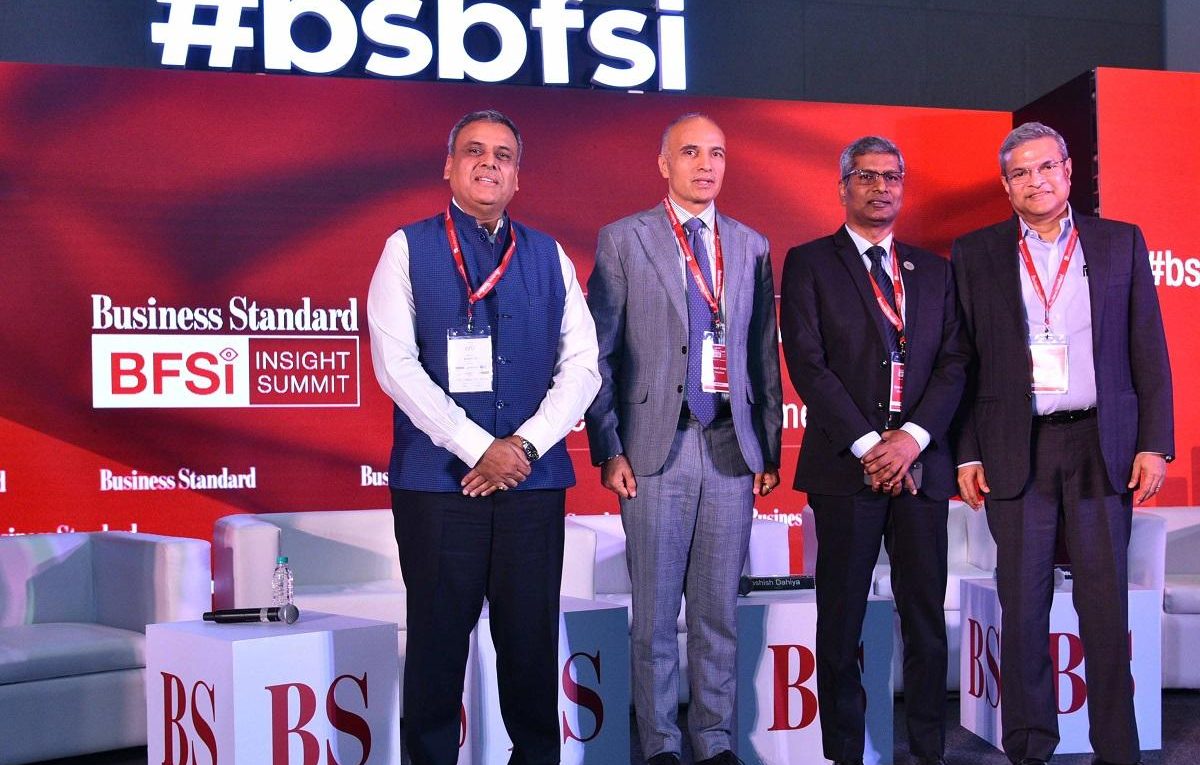BS BFSI Summit: General Insurance sector eyeing 1.5% penetration by 2030
Key industry players revealed at the Business Standard BFSI Insight Summit on Tuesday that the general insurance industry is planning to increase its penetration to 1.5 per cent of gross domestic product by 2030, up from the current 1 per cent.
Bhargav Dasgupta, managing director (MD) and chief executive officer (CEO) of ICICI Lombard General Insurance Company, said, “We had 0.5 per cent penetration when we started; reaching 1.5 per cent in seven to eight years should be feasible. The general insurance industry is expected to grow at a compound rate of 20–25 per cent for the next 10-15 years due to the reforms and progress witnessed in the industry.”
In the past two decades, the industry has grown at a rate of over 16 per cent despite experiencing price corrections. The per-sum insured price that was charged as an industry has seen moderation, particularly from 2008 to 2012. In a favourable environment, Dasgupta expects the industry to exhibit healthy growth.
The penetration of general insurance companies in India stands at 1 per cent, compared to the 3.2 per cent penetration of life insurance companies.
India’s penetration is also lower than that of other countries around the world. Due to this low penetration, the leaders of major general insurance companies believe that there is a 4x untapped potential opportunity in India.
According to Kishore Kumar Poludasu, MD and CEO of SBI General Insurance Company, to bridge the gap between life and general insurance penetration, companies can focus on rural areas where most assets are uninsured, leading to an absence of risk transmission.
Furthermore, favourable regulations, new products, fresh capital, innovative customer engagement methods, and support from digital technology can help increase the sector’s penetration.
“The changes initiated by the regulator have facilitated the launch of new products and innovative customer engagement methods, whether in business sourcing, servicing, or claim settlements, with appropriate support from the digital architecture. This, combined with more new entrants into the industry, will help improve penetration and awareness across the nation,” added Dasgupta.
With strong support from the insurance regulator and an influx of robust capital for the industry, its growth will receive a significant boost.
“I believe that with a sound foundation, it is important for the industry to attract capital. We observed Yashish Dahiya, CEO and co-founder of PolicyBazaar.
In addition to industry capital development, maintaining consistent legal standards is equally crucial. There needs to be a certain level of trust and confidence in insurers by regulators, with responsible behaviour from companies in return.
Moreover, increased transparency and the ability to easily identify fraudulent claims in the industry will contribute to its growth.
“The more transparent the industry becomes, the faster claim settlements will be. We aim to process claims quickly for rightful claimants, but not for those who have misdeclared,” said Ritesh Kumar, MD and CEO of HDFC Ergo General Insurance.
Lack of trust and confidence in the sector, coupled with a lack of awareness, is one of the factors hindering the growth of the insurance industry.
“What will change the consumer’s mindset towards purchasing more policies? I think the industry, not only in India but globally, suffers from a trust deficit or a confidence deficit, stemming from service difficulties. The industry does a great job of settling claims, but there is a disconnect. When you examine the data, many claims encounter issues. If we can address this, it would truly expand the industry,” Dahiya added.
The panel also highlighted the advantages that a diversified portfolio will gain from the shift to risk-based capital and solvency.
“What will change is that people with a more diversified portfolio will require less capital. This begins to offer benefits for diversification,” added Kumar.
This shift will also redirect the focus from a top-line approach to a profitability approach, with a major emphasis on return on capital.
“In the risk-based capital (RBC) framework, we foresee a shift from a top-line approach to a profitability approach, where return on capital will play a significant role in determining the industry’s business mix going forward,” Poludasu added.
Additionally, the RBC approach may influence the strategies of companies depending on their capital constraints. Risk-based solvency will also consider portfolio quality and market risk, representing a more holistic approach compared to the existing rule-based approach.
BHARGAV DASGUPTA
“I think with a sound foundation, what would be important is that we have to get industry to attract capital”
YASHISH DAHIYA
“The more transparent the industry becomes, the faster claim settlements will be”
RITESH KUMAR
MD & CEO, HDFC Ergo General Insurance
